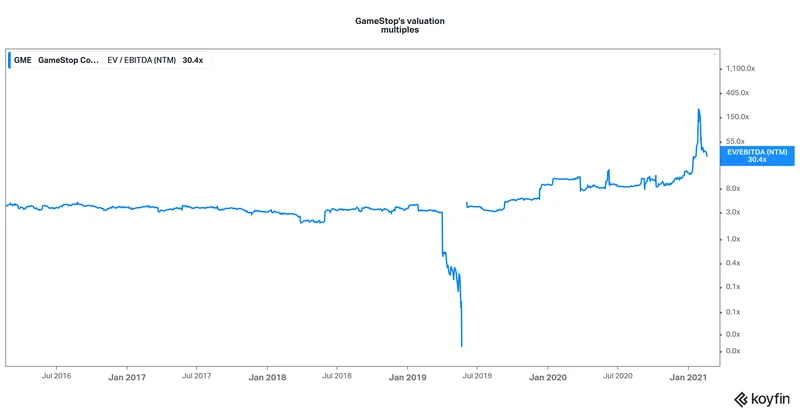Palantir Stock (PLTR): The Hype, The Price, and Why It's Not Nvidia
So, let me get this straight. The U.S. Army hands a nine-figure contract to the tech-bro darlings of the defense world, Palantir and Anduril, to build the battlefield brain of the future. And what do they deliver? A system so full of holes it makes Swiss cheese look like a solid block of steel.
According to an internal Army memo that someone thankfully leaked, the new NGC2 communications platform is a security nightmare. The Army's own Chief Technology Officer wrote, and I want you to read this slowly: "We cannot control who sees what, we cannot see what users are doing, and we cannot verify that the software itself is secure."
This is a bad look. No, 'bad' doesn't cover it—this is a five-alarm dumpster fire of incompetence. We're talking about a system designed to connect soldiers, drones, and commanders in real-time combat. A system where not knowing who's looking at what data isn't just a privacy issue; it's a way to get an entire platoon wiped off the map.
Anduril, founded by the virtual reality wunderkind Palmer Luckey, and Palantir, the spooky data-mining firm co-founded by Peter Thiel, sold the Pentagon on a vision of agile, Silicon Valley-style disruption. They promised to deliver cutting-edge tech faster and cheaper than the old-guard dinosaurs like Raytheon. They boasted about getting a prototype working in just eight weeks. Eight weeks! It takes me longer than that to get my cable company to show up for an appointment. It turns out, when you move fast and break things in the world of national defense, the "things" you break are fundamental security protocols.
The PR Spin Cycle Kicks In
Of course, the moment this memo saw the light of day, the damage control machines whirred to life. It's a dance as old as time.
Anduril's response was a masterclass in corporate non-apology, claiming the memo reflects an "outdated snapshot." Outdated? How outdated are we talking here? A week? A month? Does that make it better? It’s like a chef telling you the rat you found in your soup was from an "outdated snapshot" of the kitchen's pest problem. It doesn’t change the fact that there was a rat in the damn soup to begin with. What kind of process allows a system to get to a "very high risk" state at any point in its development?

Then you have Palantir, whose spokesperson flatly stated, "No vulnerabilities were found in the Palantir platform." This is just... amazing. It’s a bold strategy, Cotton, let's see if it pays off for 'em. The Army’s CTO says the system is a sieve that could give an enemy "persistent undetectable access," but Palantir says its part is perfect? So is the Army lying, or is Palantir playing a shell game with what defines "their platform"? It’s the kind of linguistic gymnastics that makes my head hurt. It reminds me of every time a social media company gets caught selling our data and says it wasn't a "breach" because they chose to give it away. Give me a break.
The Army’s Chief Information Officer, Leonel Garciga, tried to smooth things over, telling Reuters it’s all part of the "normal process" and that most issues were fixed in "a matter of weeks and days." This is perhaps the most terrifying statement of all. If a system this fundamentally broken is considered a "normal" step in the development of critical military hardware, then the entire process is definitly rotten from the core. Are we just supposed to accept that our frontline technology will, for some period of time, be wide open to our adversaries?
Hype, Stocks, and the Ugly Truth
Here’s the part that really gets me. While this mess was unfolding behind the scenes, the market was treating Palantir stock (PLTR) like the second coming of Nvidia. The stock is up some insane amount, fueled by the relentless AI hype machine. Wall Street is drooling over `Palantir Technologies`, betting on Peter Thiel's vision of an all-seeing AI that will revolutionize warfare and intelligence. Investors are asking Stock-Split Watch: Is Palantir Next?, not if the company's flagship products actually work securely.
The contrast is sickening. I can just picture it: a slickly-produced demo at Fort Carson, with soldiers firing howitzers in seconds, everything running on a glowing screen. It looks great for the investors and the generals. But beneath that shiny user interface, the memo tells us there’s no logging, no access controls, and third-party apps with hundreds of vulnerabilities. It’s like building a supercar with a gleaming chassis, a roaring engine, and brakes made of cardboard. It looks incredible right up until the moment you actually need it to work.
This isn't just an isolated screw-up. This is the logical conclusion of a culture that worships disruption for its own sake. The Pentagon, desperate to keep up with China, has thrown open its doors to Silicon Valley's "move fast" ethos, and they're getting exactly what they paid for: speed, flash, and a complete disregard for the boring, painstaking work of building secure, resilient systems. And if the market’s reaction to the news—a temporary 7.5% dip in `Palantir stock price` before the hype train likely gets back on track—is any indication, no one really cares about the details...
Then again, maybe I'm the crazy one. Maybe this is just how the sausage gets made in the 21st-century military-industrial complex. But I have to ask: at what point does "breaking things" break something that can't be fixed with a software patch?
The Emperor's New Algorithm
Let's be real. This isn't a bug; it's a feature. This is the Silicon Valley mindset made manifest in military hardware. They sold the Pentagon a bill of goods about "agile development" and "disruption," which is just a fancy way of saying "we'll figure out the important stuff later." The market rewards the story, not the reality. We're funding a national security apparatus built on hype, powered by buzzwords, and held together by the digital equivalent of duct tape and prayer. And we’re all just supposed to pretend the emperor is wearing clothes.
Related Articles
nbis stock: What's the deal?
[Generated Title]: Google's "People Also Ask" Boxes: Helpful Answers or SEO Poison? Alright, let's t...
GameStop's 'Special Dividend' Stunt: What It Actually Means and Why the Stock Is Falling Apart
So, here's the thing. I can't write the article you came here to read. I was supposed to. I had a to...
Dow Futures: A Temporary Dip, or a Glimpse of What's Coming?
Cookie Control: The Dawn of Digital Self-Determination? Okay, folks, buckle up. I know, I know, a co...
AI's Next Chapter: What Happens Now?
The AI Cyber War Has Begun—But It’s Humanity's Ultimate Wake-Up Call Friends, colleagues, fellow dre...
The Aster Name is a Mess: A breakdown of the flower, the crypto, and the weird-ass movies
Forget Crypto, My New Investment is a Six-Inch Weed Called 'Snow Flurry' So, I’m scrolling through m...
AXS: More Than a Token, A Glimpse Into Our Digital Future
The Denver Anomaly: Why One Thursday in 2025 is a Secret Glimpse of Our Algorithmic Future Look, I w...





